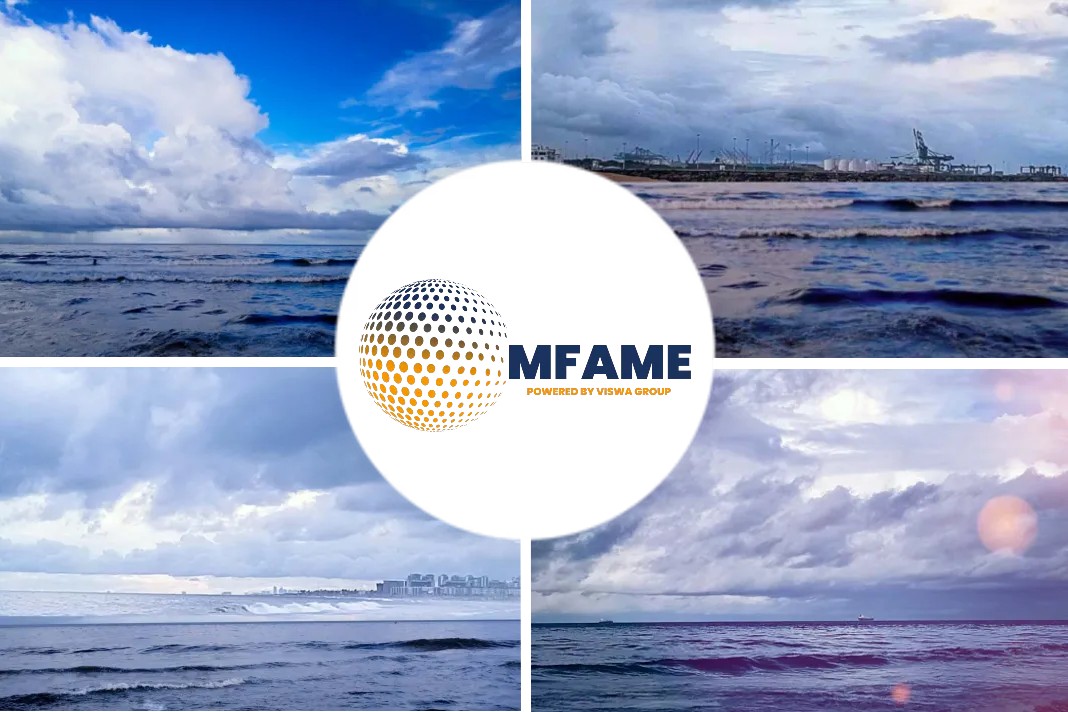- Clean Arctic Alliance calls on IMO member states to agree on stronger ban of HFO in Arctic ahead of November meeting.
- Norwegian government calls for complete ban on the use of heavy fuel oil (HFO) by shipping around the Arctic archipelago of Svalbard.
- Reacting to the announcement by the Norwegian government of its proposal, Clean Arctic Alliance Lead Advisor Dr Sian welcomes this important commitment.
This news from the Rasmussen is based on a press release from the Clean Arctic Alliance. The press release deals with the response to the Norwegian government of its proposal to completely ban the use of heavy fuel oil (HFO) by shipping around the Arctic archipelago of Svalbard.
Dr. Sian Prior reacts
Clean Arctic Alliance Lead Advisor Dr Sian Prior said: “We welcome this important commitment by Norway to protect the waters around Svalbard from the risks of heavy fuel oil (HFO) spills, and its glaciers and sea ice from the impacts of black carbon emissions caused by the burning of HFO. Norway leads the way amongst Arctic nations in getting rid of HFO from Arctic waters, and is demonstrating international leadership by going above and beyond the weak ambitions of Arctic HFO ban currently being considered by the International Maritime Organization.”
What does the announcement say?
The announcement of Norway’s proposal states that “Heavy oil spills can do great damage in the Arctic due to the vulnerable ecosystems and how heavy oil behaves at low temperatures and ice. If such oil is released in the event of an accident on Svalbard, it could lead to major and long-term damage to the environment. In addition, large distances, ice, cold and poor access to oil spill response resources mean that emergency preparedness and clean-up will be difficult and expensive.The Ministry of Climate and the Environment is now sending the proposal for public consultation” .
HFO has been banned from Svalbard’s national park waters since 2015, and has been banned in Antarctic waters since 2011 .
IMO drafts its regulations
In February 2020, the IMO and its member states developed a draft regulation prohibiting the use and carriage as fuel of heavy fuel oil (HFO) by ships in the Arctic.
However, the inclusion of loopholes in the draft regulation – in the form of exemptions and waivers – means that a HFO ban will not come into effect until mid-2029, leaving the Arctic exposed to the growing threat of HFO spills for the whole of the 2020s – nearly a decade.
What does the recent analysis say?
According to recent analysis by the International Council on Clean Transportation, as currently drafted, the regulation will only reduce the use of HFO by 16% and the carriage of HFO as fuel by 30% when it takes effect in July 2024, and will allow 74% of Arctic shipping to continue with business as usual.
Between July 2024 and July 2029, when the ban becomes fully effective, the amount of HFO used and carried in the Arctic is likely to increase as shipping in the Arctic increases, and as newer ships replace older vessels and are able to take advantage of the exemption or change flag and seek a waiver from the ban.
Arctic’s chance of facing greater risk
“If the IMO’s Arctic HFO ban is approved as currently drafted, it will expose the Arctic to even greater risks associated with HFO throughout the 2020s. Norway’s commitment to protect the waters and environment of Svalbard must serve as the impetus for greater ambition from Arctic states to agree to a stronger and effective ban on this dirty shipping fuel throughout the Arctic”, said Prior.
Five central Arctic coastal states
As drafted, with the five central Arctic coastal states able to issue waivers to their own flagged ships and by-pass the ban, the regulation is not flag-neutral.
It will create a two-tier system of environmental protection and enforcement in the Arctic, along with lower standards and negative environmental consequences in Arctic territorial seas and exclusive economic zones.
This version of the ban could also potentially lead to transboundary pollution.
On Wednesday, 18 November, the International Maritime Organization’s Marine Environment Protection Committee (MEPC 75) is scheduled (virtually) to approve the draft Arctic HFO regulation .
“In response to the inherent weakness of this draft ban, the Clean Arctic Alliance is calling for IMO Arctic Member States to mirror Norway’s leadership, and to strengthen and improve the draft Arctic HFO regulation by removing or amending the exemption and the waiver clauses, and by bringing forward the implementation dates. Failure to do so will result in the approval of a “paper ban” on the use and carriage of heavy fuel oil – devoid of any meaningful protection for the Arctic”, concluded Prior.
Did you subscribe to our daily newsletter?
It’s Free! Click here to Subscribe!
Source: The Rasmussen





























